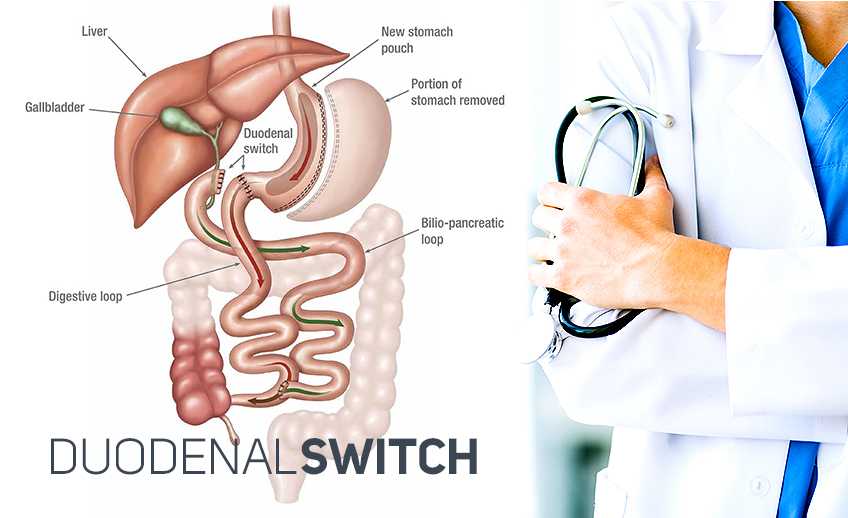Individuals with a body mass index (BMI) of 50 or greater are considering duodenal switch surgery at Bariatric Surgery Tijuana.
The duodenal switch procedure is used to treat patients who are classified as ‘super obese’ and at a high risk of developing one or more comorbid conditions related to their excess weight.
At Bariatric Surgery Tijuana, our team of highly skilled and experienced weight loss specialists offer this life-changing surgery to patients who require a highly effective treatment for chronic, life-threatening obesity.
They use the latest in laparoscopic techniques to improve patient outcomes and reduce the risk of surgical infections, pain, and complications
About Duodenal Switch Surgery
Duodenal switch surgery is actually two separate procedures performed in one surgical session.
Patients are first given a sleeve gastrectomy to dramatically reduce the capacity of their stomach – this helps to minimize both caloric intake and the production of hunger-stimulating hormones.
A gastric bypass is then performed to bypass approximately half of the small intestines – this further reduces the amount of calories and fat the body can absorb in order to promote a rapid reduction in unwanted body fat.
Not recommended for…
Patients who have pre-existing digestive issues such as irritable bowel syndrome, gastric reflux (GERD), or Crohn’s Disease may find that the duodenal switch surgery aggravates their symptoms, and therefore are not good candidates for this procedure.
Similarly, patients who have pre-existing mineral or vitamin deficiencies, such as those who suffer from chronic anemia, are often advised against having this procedure.
Duodenal Switch Advantages
- Patients are able to eat more normal meals than with standard Roux-en-Y gastric bypass or adjustable gastric banding, resulting in higher degree of patient satisfaction
- Patients are able to achieve significant and long-lasting weight loss, due to the high level of malabsorption
- Patients do not experience dumping syndrome, common with Roux-en-Y gastric bypass surgery, because the pyloric valve between the stomach and small intestine is kept intact
- Reduces likelihood of stomal ulcers from occurring
- The intestinal rerouting can be reversed if medically necessary as no part of the small intestine is removed
- The hunger hormone, Ghrelin, is greatly reduced due to removing a large portion of the stomach
- Improvement in obesity comorbidities, such as type 2 diabetes and high blood pressure, shortly after surgery
- Super obese patients who are turned down for other weight loss surgeries may qualify for the DS procedure
- Very effective weight loss for patients with high BMI (BMI greater than 55)
- Average weight loss of 60-80% excess weight
Duodenal Switch Diet
Patients who undergo duodenal switch surgery must follow a highly restrictive lifelong diet that involves consuming healthy, lean proteins and vegetables while avoiding complex carbohydrates and simple sugars.
Because this procedure impacts the absorption of nutrients, patients also need to continuously monitor levels of vitamins and minerals in their blood, and supplement their diet daily with a variety of multivitamins.
For More Information
To learn more about laparoscopic duodenal switch surgery, contact Bariatric Surgery Tijuana.



